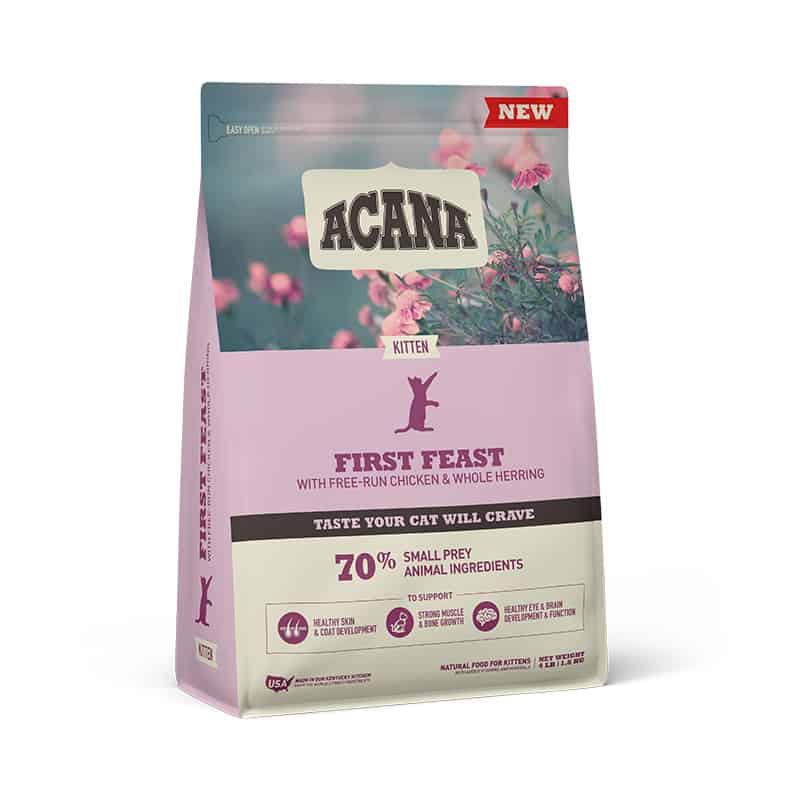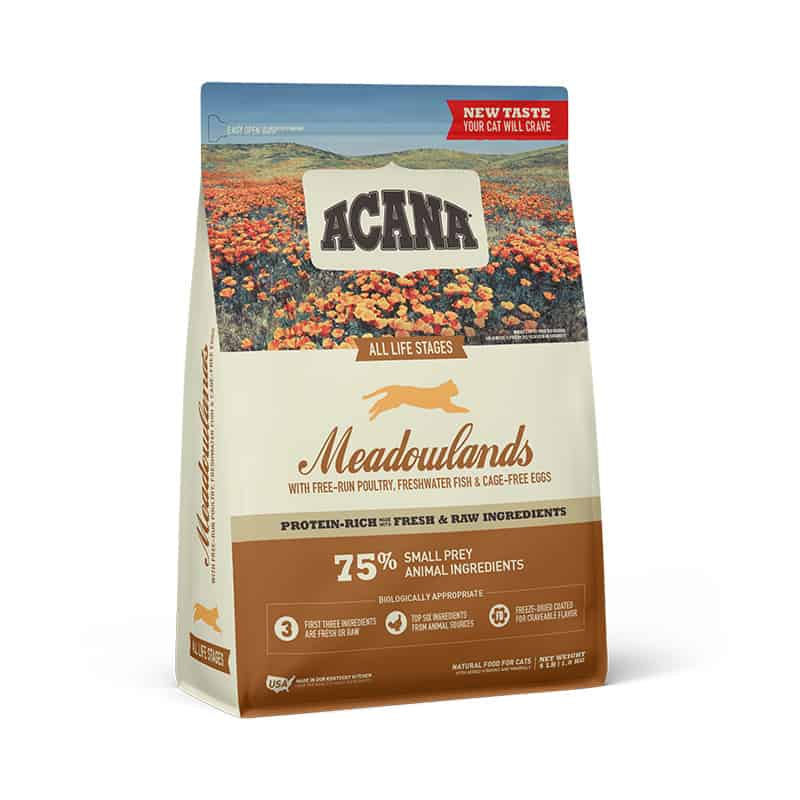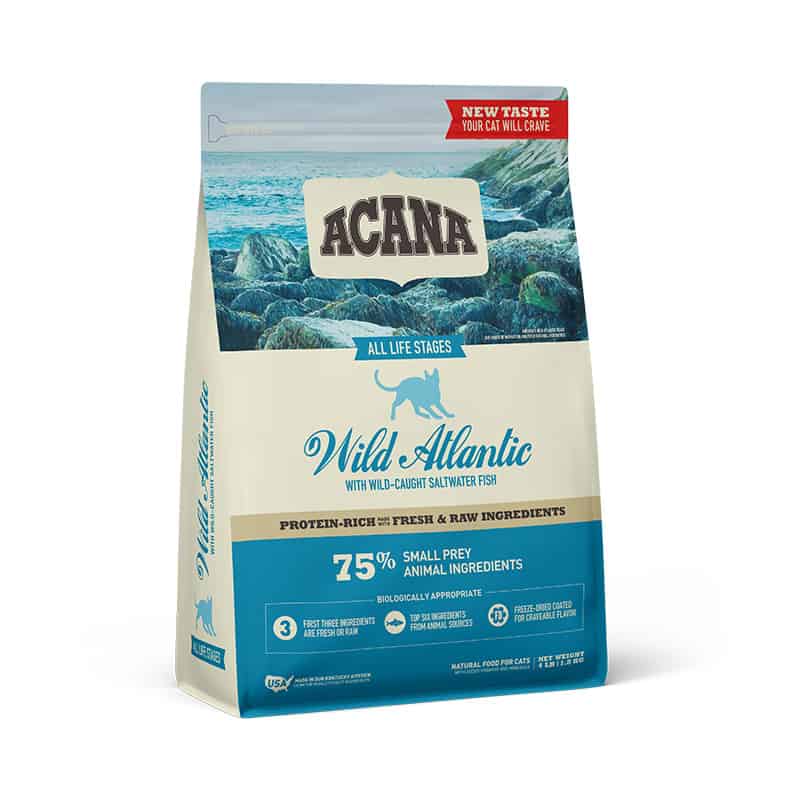Please note, I received compensation in exchange for this blog post.
– Shawn Messonnier, DVM
Getting a new kitty can be an exciting time, but new pet parents often have many questions. Here are my top five things to discuss with new kitten owners.
1. What do I feed my kitten?
There are SO many choices and it can be confusing to pick the best diet for your kitten. Asking your veterinarian can be helpful, but many do not appreciate the importance of a more natural and holistic diet, often recommending the “standard” foods to which we were exposed during our veterinary training. I recommend feeding kittens quality animal ingredients. With this in mind, remember that your cat is an obligate carnivore and must eat animal-based protein. The cat biologically requires a diet that is rich in protein from high quality whole animal ingredients rather than parts of the animal, or plant-based proteins, which they have difficulty digesting and could lead to diarrhea. One diet I recommend for kittens is ACANA® First Feast. It features 70% quality animal ingredients*, like free-run† chicken and whole-herring. It is an all life-stages diet with no artificial colors, flavors or preservatives added in the kitchen, and is formulated to target the needs of a growing kitten.
Unlike many manufacturers which get ingredients from a variety of mass-produced sources, ACANA® pet foods are made with premium ingredients from a curated group of farmers, ranchers and fishers they’ve known and trusted for decades. They approach every batch of food with an unsurpassed commitment to safety and quality which results in a protein-rich, nutritious, and delicious cat food to help cats live a healthy, happy life.
2. How much do I feed my kitten?
My easy answer is enough to allow the kitten to gain weight and achieve adult size by 12 months of age without becoming overweight. The manufacturer often puts guidelines on the bag of cat food. Most cats do well with feeding small amounts of food several times daily. My own adult cats get three small meals daily, with each cat eating about ¼ cup of one of ACANA® food three times daily, plus treats. I prefer meal feeding rather than always having a full bowl so I can make sure the cats are eating and monitor how much they eat daily.
3. What vaccines are needed for my new kitten? (Champion Petfoods does not offer medical advice. Views expressed are those of Dr. Shawn Messonnier)
As a holistic doctor, I tend to minimize vaccines and drugs and only use those that are needed based upon numerous factors, including the pet’s lifestyle. For kittens, my modified protocol is to do some vaccination at 8, 12 and 16 weeks of age, along with an exam, microscopic fecal exam, and deworming at each visit. Depending upon the kitten’s prior vaccine history, the vaccine schedule can include a vaccine for rabies as well as something called FVRCP, which immunizes kittens against cat distemper and respiratory viruses. Later in life, “annual vaccination” is replaced by blood titer testing, which allows the cat’s body, by testing for antibodies, to tell me what if any vaccines are needed.
4. What are your thoughts about spaying or neutering kittens? (Champion Petfoods does not offer medical advice. Views expressed are those of Dr. Shawn Messonnier)
I’m a big proponent of spaying and neutering cats to minimize problems such as cancer, unwanted pregnancy, diseases of the ovaries and uterus, and to prevent behavioral problems such as urine spraying (while more common in males, even females can spray urine.) Because kittens come into puberty around 5-6 months and can get pregnant even at this young age, I typically spay females and neuter males around 5 months of age to prevent problems.
5. What About cat toys?
Kittens can be playful just like puppies. Most love to chase a laser light on the floor and walls. Any cat toy, especially one that makes a noise, that is pulled on the floor or into the air by a string is popular. Check with your veterinarian if there are questions about whether or not the toy you choose is safe for your kitten, and then have fun! Kittens will be stimulated mentally and physically by whatever you choose, and playtime bonds kittens and owners. Finally, have a scratching post available for your kitten. Scratching is a normal behavior and all cats will use the post. I prefer a thicker carpeted or rope material as most cats seem to prefer this to other types of fabric.
Recipes Your Kitten May Love
Dr. Shawn Messonnier opened Paws & Claws Animal Hospital and Holistic Pet Center in 1991. His special interests include holistic and functional medicine, exotic pets, dermatology, cancer, and internal medicine. Dr. Shawn is a well-known speaker and author. In addition to serving clients, he has written for numerous veterinary and pet publications including Animal Wellness, Body + Soul, Veterinary Forum, Dog Fancy, Cat Fancy, Dog World, Fido Friendly, Whole Dog Journal, Whole Cat Journal, Whole Living, Total Health and Wellness. He is the former radio host of the award-winning Dr. Shawn The Natural Vet for Martha Stewart Living Radio.
* Approximate and derived from the preprocessed state of the ingredients.
†Our free-run chickens and turkeys are not housed in cages and are able to move in a barn without outdoor access.





